Articles Archive
See all articles and discover more interesting topics!

TN.cz | Ursula von der Leyen spoke about the State of the Union
Where the European Union will head in the coming year was revealed by Ursula von der Leyen in her anticipated speech. The Commission President's address to the Members of the European Parliament on Wednesday was met with both applause and booing. The situation was commented on by Filip Křenek, an analyst from the EUROPEUM Institute.

Seznam Zprávy | Europe one year after the alarming Draghi report: Clean Deal and the deal with Trump
A year ago, one of the most important economic documents of our time caused a stir in Europe. Professor Mario Draghi identified the weaknesses of the European economy and outlined a path for the EU to escape the slow decline in the shadow of China and the USA. Since then, European analysts have presented one strategy after another, but their real impact has so far been limited. The topic was commented on by Filip Křenek, an analyst at the EUROPEUM Institute.

Téma 21 | The European Union is like a homeowners' association. Even if we left, we would still live in the same building, says a political scientist
Security and ETS2 are European topics reflected in the Czech pre-election campaign. Why will emission allowances remain with us? Is the federalization of the European Union realistic? And where to find the roots of Czech euroscepticism? Viktor Daněk from the EUROPEUM Institute answers these questions.
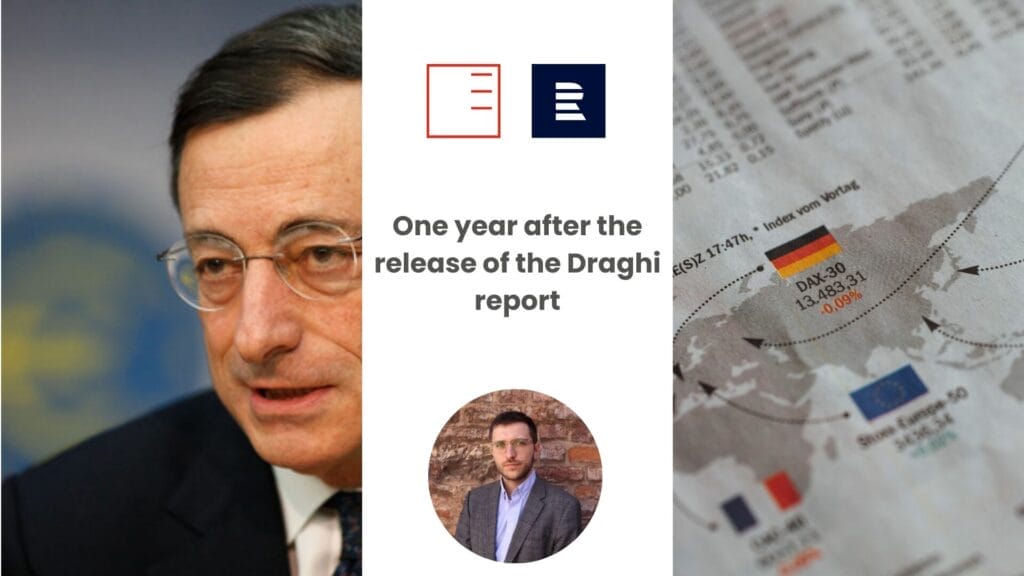
Český rozhlas | One year after the release of the Draghi report
Tomorrow marks exactly one year since the release of the Draghi report, in which the former head of the European Central Bank detailed the profound economic problems facing the European Union. He also outlined a roadmap for restarting the competitiveness of the member states. Filip Křenek, an analyst at the EUROPEUM Institute, commented on the Draghi report.

Brdy as a Battlefield: High School Students on a Mission in the Fictional Dorménie
The state of Dorménie in the middle of the Brdy forests became the scene of dramatic events. Fortunately, it was fiction. The Valdek military training facility hosted the eighteenth final of the unique high school competition Europa Secura at the beginning of September.
The final of the competition is organized annually by the Institute for European Politics Europeum in cooperation with the Ministry of Defense and the Army of the Czech Republic. As part of the competition, the fictional state of Dorménie was created in the Brdy region. The competition involved 42 of the best students who advanced to the final from regional rounds. Each region was thus represented by its best three-member team.
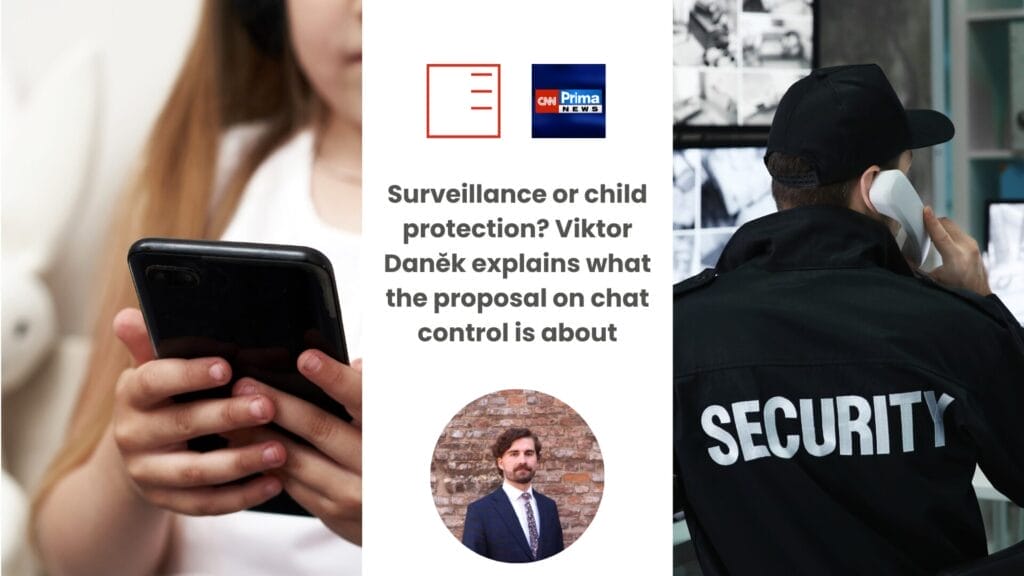
CNN Prima News | Surveillance or child protection? Viktor Daněk explains what the proposal on chat control is about
One of the central topics in the election debates has become the so-called chat control, a regulation aimed primarily at protecting children on the internet. However, one of its tools would also involve scanning private messages or photos and videos that people send, for example, via Instagram or WhatsApp. Viktor Daněk commented on this.

Česká televize | Meeting of European Council President António Costa with Prime Minister Fiala
Prime Minister Petr Fiala is meeting with European Council President António Costa. The main topics of the conversation are expected to be the preparation for the upcoming EU summits and discussions about the current priorities of the European Union. The meeting was commented on by Viktor Daněk, Executive Deputy Director and Head of the Prague Office of the EUROPEUM Institute.
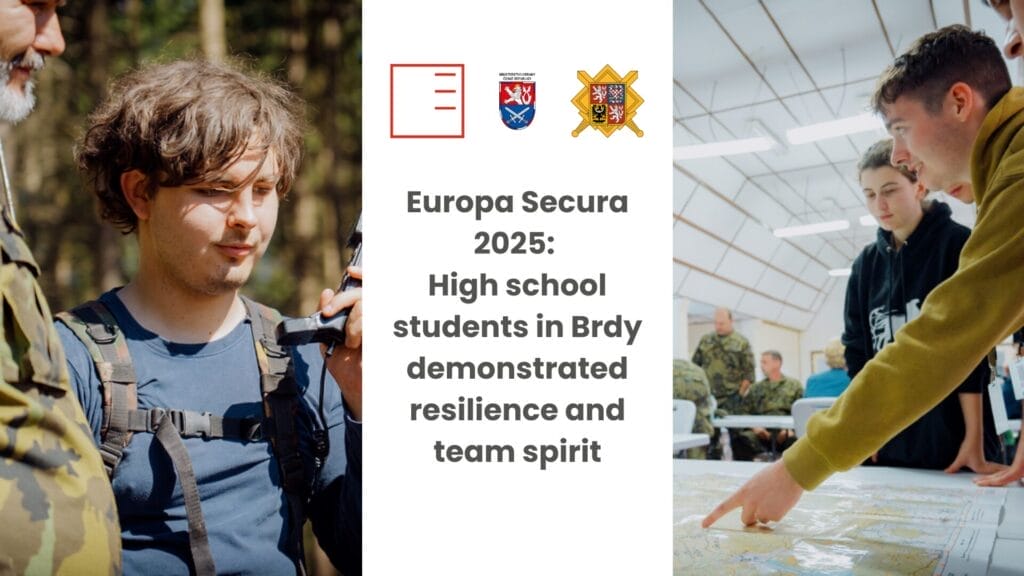
Europa Secura 2025: High school students in Brdy demonstrated resilience and team spirit
The Valdek military training facility in the Brdy region hosted the eighteenth final of the unique high school competition Europa Secura at the beginning of September. The event is organized annually by the Institute for European Politics Europeum in cooperation with the Ministry of Defense and the Army of the Czech Republic.
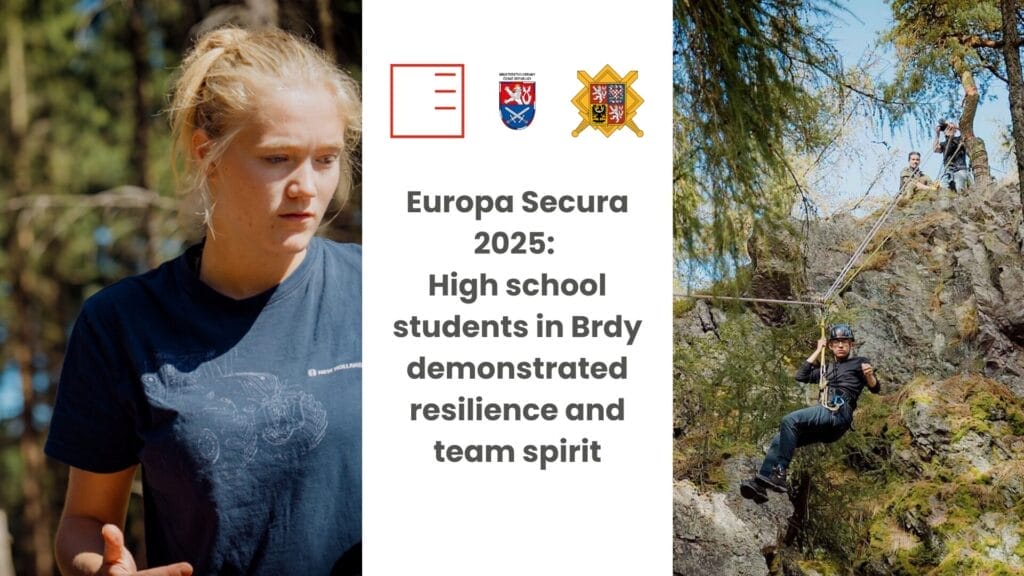
Europa Secura 2025: High school students in Brdy demonstrated resilience and team spirit
The Military Training Facility Valdek in the Brdy region hosted the 18th final of the unique high school competition Europa Secura at the beginning of September. This event is organized annually by the Europeum Institute for European Policy in cooperation with the Ministry of Defense and the Czech Army.
Europa Secura is a project designed for high school students that combines knowledge about the security and foreign policies of the European Union and NATO with practical skills and personal resilience. The final competition involves an intensive five-day workshop with various tasks, including diplomatic simulations and practical challenges, testing the students' physical and mental endurance as well as their teamwork and diplomatic skills. The project aims to provide students with unique experiences and prepare them for responsible action in challenging situations.

Česká televize | Support from European countries for Ukraine
The President of the European Commission got into a dispute with the German Defense Minister Pistorius, who reproaches her that these sensitive and moreover theoretical plans cannot be discussed publicly. Is he right, or would Europe benefit more from an open debate? Answering is Viktor Daněk, Executive Deputy Director and Head of the Prague Office of the EUROPEUM Institute.
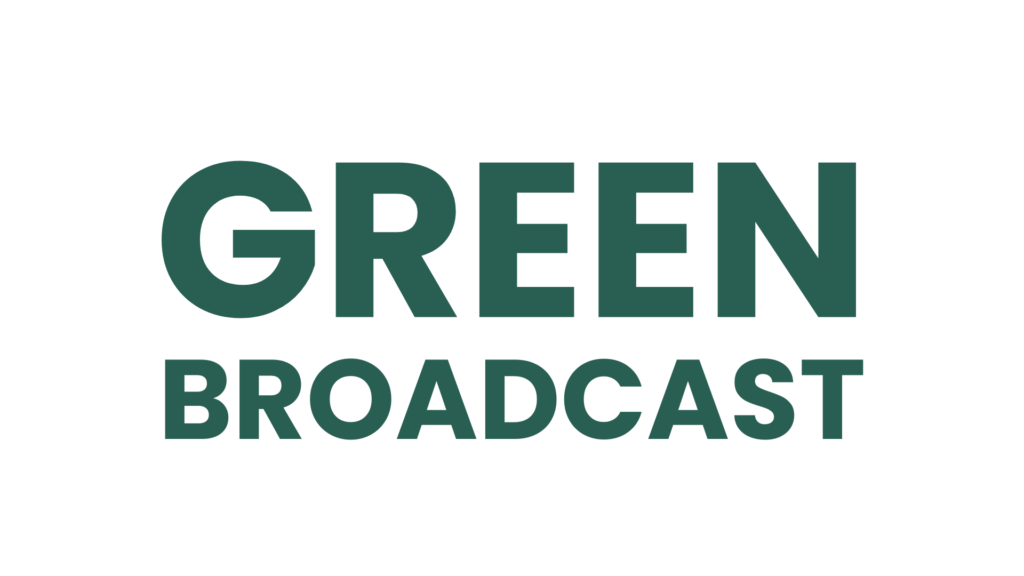
Green Broadcast
The project Green Broadcast was launched on 1 January 2025 and will be ongoing until 31 August 2025.
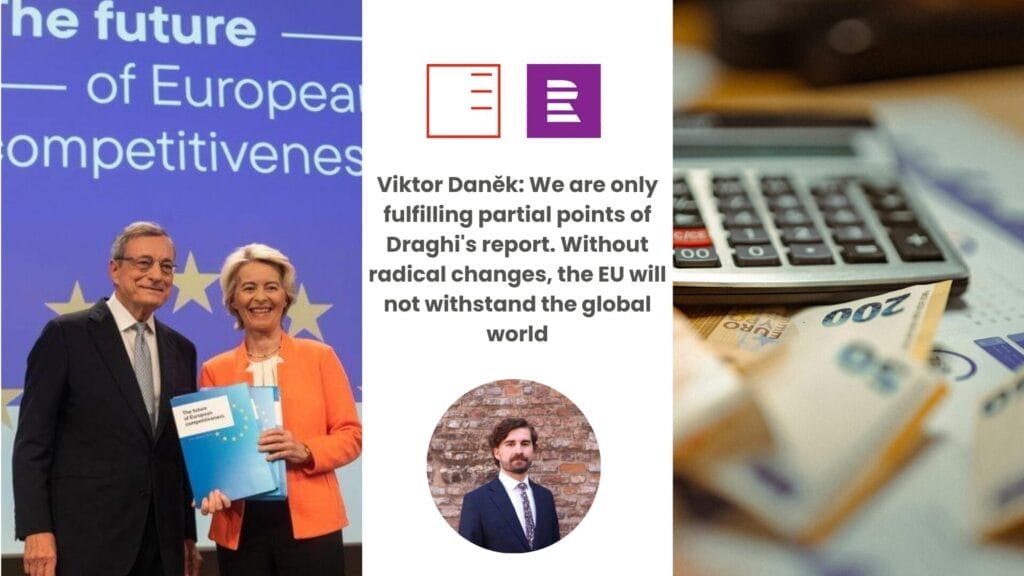
ČRo Dvojka | Viktor Daněk: We are only fulfilling partial points of Draghi's report. Without radical changes, the EU will not withstand the global world
At the beginning of September, it will be one year since the publication of the Draghi Report, which warns the European Union about its declining competitiveness. “Unless something truly radical happens, Europe cannot hold its own in a global world alongside major players like the United States and China,” says Viktor Daněk, Deputy Executive Director and Head of the Prague Office at the EUROPEUM Institute.